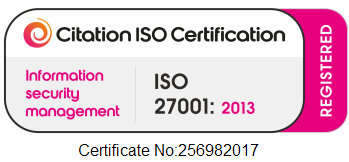Digitalisation paired with the dawn of the internet has meant the recruitment industry has seen huge shifts over the past decade. Recruiters are spending more time and budget on attracting candidates ensuring a positive candidate experience, whilst job seekers are increasingly taking control of their career prospects by prioritising wellbeing and work/life balance over traditional company benefits.
We’re going to take a look at how the recruitment industry has changed over the past decade and upcoming trends to look out for in 2022.
Technology
Technology has been a big talking point for many industries over the years, however, the recruitment sector has particularly seen immense periods of growth due to technological advances, which have often shaped the industry for the better. Methods of communication such as fax, post and telephones have been replaced with the integration of smartphones and communication platforms such as Skype and more recently Zoom.
This integration has meant it’s even easier for job candidates to apply for vacancies, meaning the need for a seamless and user-friendly hiring process is more important than ever before. Recruiters now utilise technology in every step of their sourcing, hiring and onboarding methods.
The rise of social media giants such as Facebook, Instagram, Twitter and LinkedIn has also resulted in both recruiters and job seekers identifying talent easier. Whilst job sites such as Reed have enabled recruiters to post hundreds of job postings and attract a number of applicants.
Societal Behaviour
Workforces are equipping themselves with a ‘millennial’ mindset, setting work principles and values that meet the needs of the 21st-century worker. Younger employees are used to having the internet at the tip of their fingers and are aware of how to use it to their advantage. If their unhappy with their current employer they can easily apply for another job with just a click of a button.
Therefore, recruiters and employers need to keep candidates engaged and attract them with specific company benefits or offer a negotiation period for areas such as flexible working, mental health and wellbeing support and personal development packages.
So, What Does The Future Hold?
2020 – 2029 is going to be the decade where data usage hits an all-time high. Data such as talent data, leadership data, evaluation criteria and hiring process is vital to any recruiter hiring power. The use of data will be vital for any recruiter in the recruitment industry who is going to make their mark.
The next 10 years will also see tons of new jobs and new job titles, with the introduction of Artificial Intelligence, Machine Learning, Data Sciences, and automation there is set to be thousands of new jobs available and new markets to be explored.
It’s also said that by 2030, there will be rarely any organisations that will hire people for their degrees or experiences. Companies will be hiring on potential and skillsets, meaning there will be new variables that will undoubtedly change the recruitment industry and how candidates compete within the market.
Conclusion
With the recruitment market shifting and candidates turning to recruiters seeking the best career opportunities, there will have to be the adoption of change. Latest tools and new forms of data will bring the rise of a new age for the recruitment industry and job seekers will be looking towards recruiters to follow.
The future holds great things, will you be apart?
Like our blogs? Sign up for our newsletter




Comments are closed